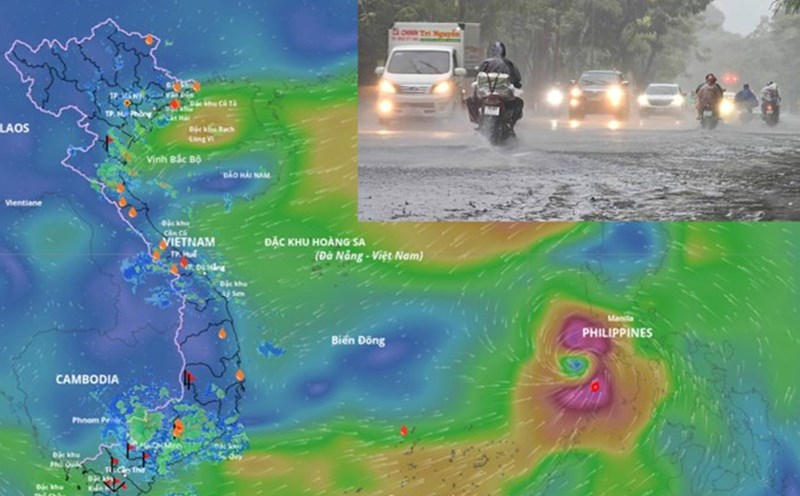On September 29, storm No. 10 made landfall in Nghe An and Ha Tinh with strong gusts of wind and heavy rain, causing serious damage. The National Center for Hydro-Meteorological Forecasting warned that the storm circulation will continue to cause heavy rain until the end of September 30 in the North Central and Northern regions, especially the area from Thanh Hoa to Hue and the northern mountainous provinces, with the potential risk of flash floods, landslides.
Implementing the Prime Minister's Official Dispatch 175/CD-TTg, the Ministry of Health has issued a dispatch to the Departments of Health of affected provinces and cities and affiliated units in the North and Central regions, requesting focus on overcoming the consequences of storm No. 10 and responding to floods after the storm.
To ensure the safety of life and maintain medical examination and treatment activities, the Ministry of Health requires the Departments of Health to urgently direct medical facilities to be ready to receive, provide emergency care, and treat flood victims, while preparing plans to mobilize human resources, means, and stockpile medicine, supplies, and hospital beds to avoid being passive in all situations.
Hospitals need to ensure regular medical examination and treatment activities are not interrupted, focusing on maintaining electricity, water, transportation systems and information technology. The Ministry of Health requires a plan to prepare a backup generator and arrange additional human resources for the intensive care unit, which uses many ventilators and essential equipment.
Proactively preventing epidemics and cleaning the environment after storms, the Ministry of Health requires drug manufacturing, trading and importing establishments to plan for timely storage and supply, especially drugs for disease prevention that may arise after storms.
The Ministry of Health notes that there should be no shortage of drugs or price fluctuations. Localities need to prepare disinfectants, coordinate with the government to organize environmental sanitation, treat domestic water sources, collect waste, and ensure clean water for people. At the same time, strengthen monitoring, early detection and handling of infectious diseases, preventing epidemics from breaking out after floods.
Units under the Ministry of Health in flood-affected areas must be ready to provide professional support, receive seriously ill patients from lower levels and organize mobile forces for epidemic prevention, disease monitoring, environmental treatment, and vaccination when required. Other units of the Ministry of Health, according to their functions and tasks, need to proactively coordinate, provide technical and logistical support to localities.
The Ministry of Health requires relevant departments and units to promptly report on the damage situation, medical examination and treatment, and beyond- capacity support needs for the Ministry to synthesize and report to competent authorities for consideration and resolution.










